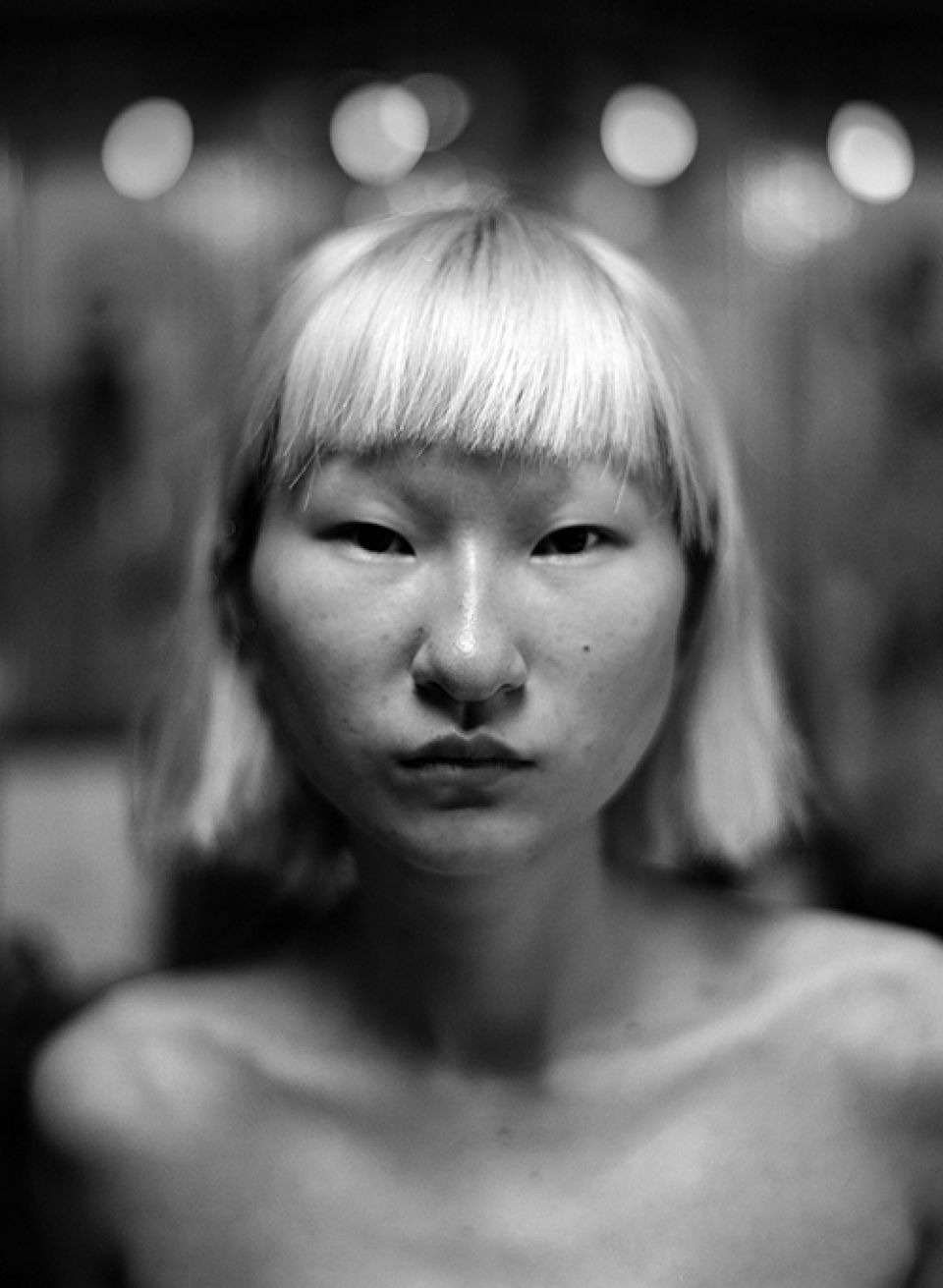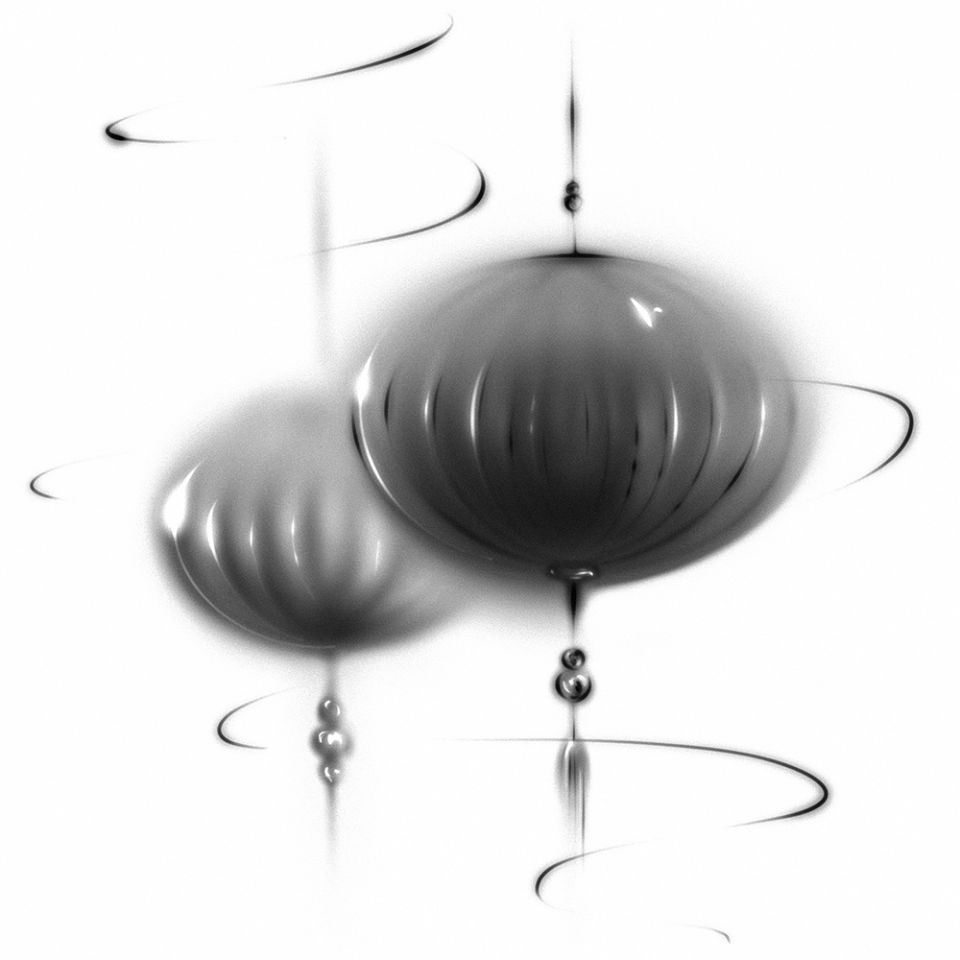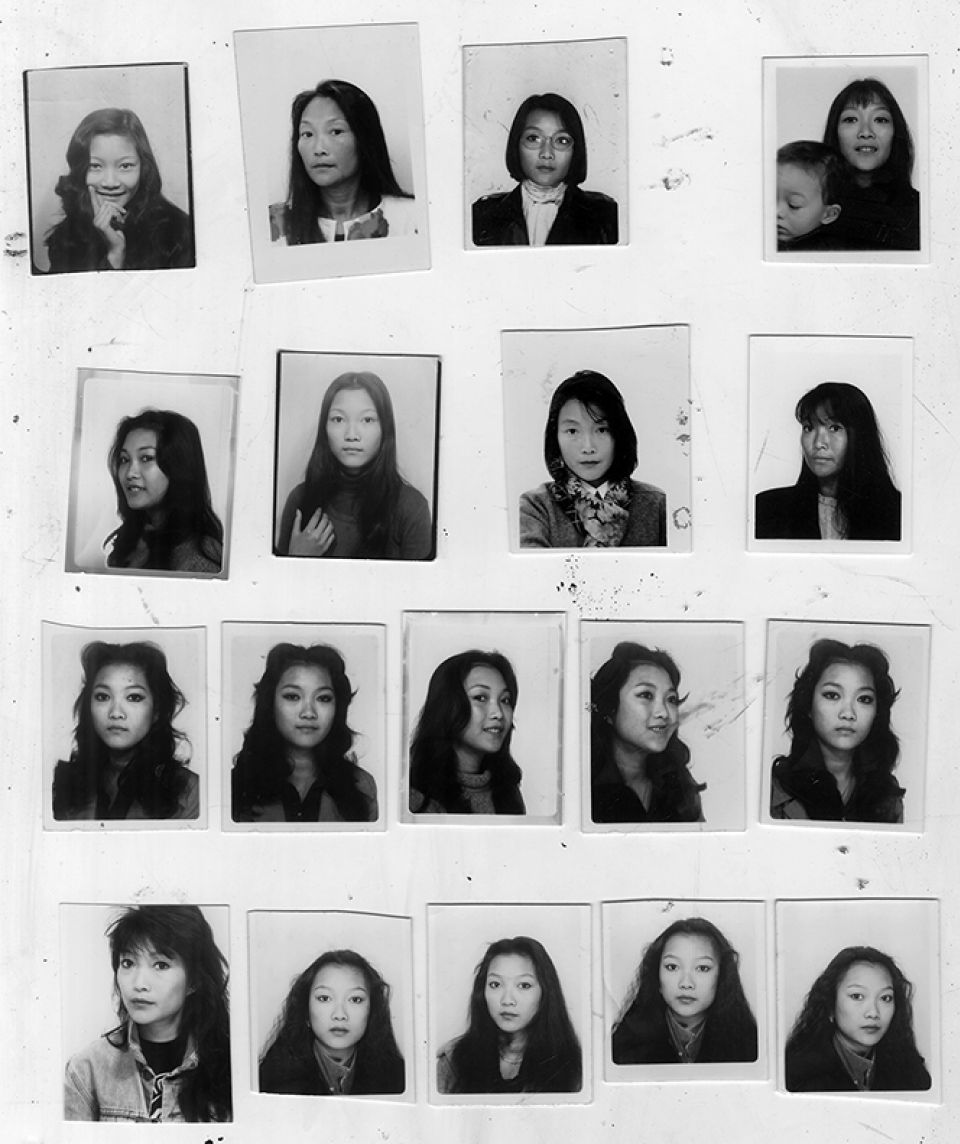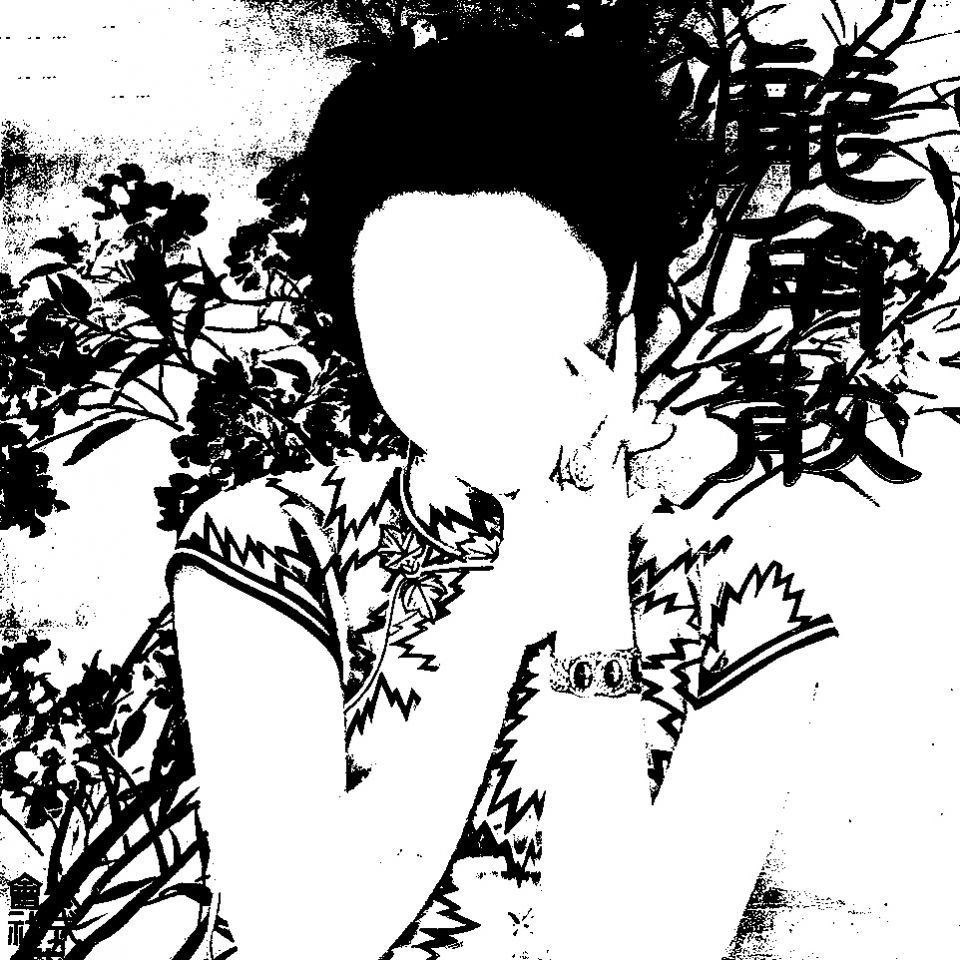Jigsaw Puzzles

The first piece I retrieve. First wave of memories. I search on the map of Asia and can’t pinpoint the countries my mother used to tell me about. I’m unable to find where I come from. To me, little white girl with a western upbringing, China is the same as the whole Asia. My mother teaches me the location of Viet Nam and Laos. All I’m familiar with about those places concerns the war, the famous Vietnam War, a particularly western name, one with its very own quote and soundtrack. I was in “Nam” on a timeless California Dreamin’. The media coverage of the conflict, the American images, the entertainment of destruction are what’s left from my European background. What went on “over there” happened in a distant exotic elsewhere, in an almost dystopian and nebulous world. A bewildering world. I can hardly distinguish houses among the bombings and the napalm. The jungle is on fire. The little girl can't stop running.
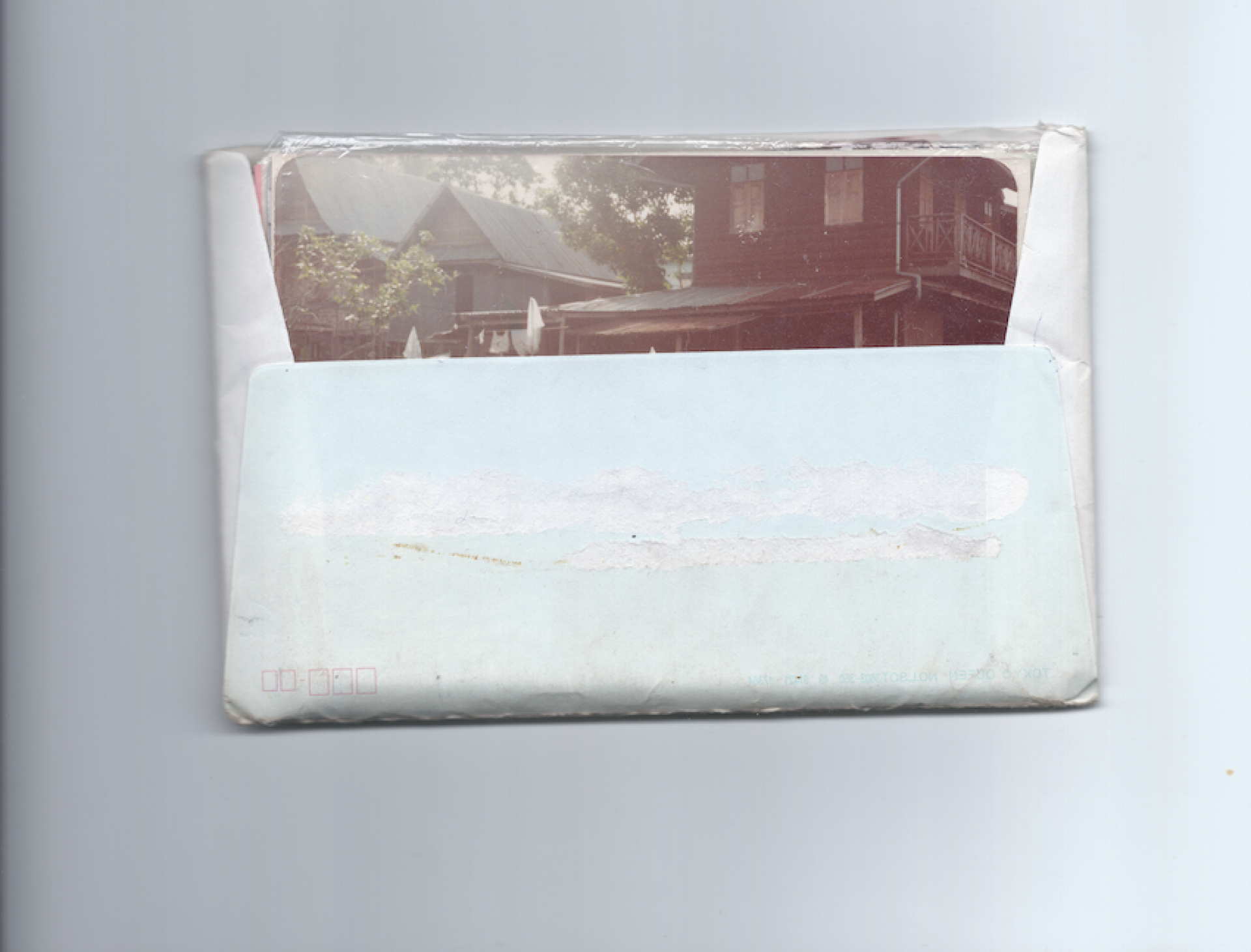
The second piece of the puzzle falls into my lap when my family starts to confide in me. Mum tells me everything about her childhood. Far from the miserable perspective I am usually fed. I see the U-shaped building where she lived, she describes the taste of the papaya salad she enjoyed with her beloved cousin, I picture her brothers and sisters running wild in the streets, Grandma being too busy to take care of them. They would even laugh while getting spanked. So many adventures, so many discoveries. Of war, they only get the distant echoes of the bombs.
Sometimes a tree is torn down and replaced by a cemetery. Sometimes a cemetery becomes a road. The apocalypse is coming. There is an uncertainty about their future. There is urgency in the present. They must leave to survive because they have nothing left. France is like an Eden they can barely imagine in their wildest dreams. Exile is sometimes the best choice. Even if it means splitting souls in two. One leaves a part of self back there, to better blend in here.

They couldn’t care less about calling themselves “the yellow ones”. “You are yellow, never forget” says Grandpa to my Auntie. As soon as they arrive at the station, the difference is obvious : Mum sees they are out of the ordinary. Too beautiful, dressed the “French way” to be less noticeable, Mamie would make each shirt and dress they’d wear. Surrounded by white people, Paris is screaming : traffic, public transportation, cops, buildings, boulevards, red lights. The city of lights has never been so worthy of its name. Their senses are suddenly jostled. Because there is magic in the air. Snow is falling. “It's raining cottons” marvels Uncle Cute. The cold feeling for the first time on their goose flesh and their chapped lips. Everything unknown welcoming them. A second birth. A new existence. The jungle is long gone, and flip-flops aren’t appropriate footwear in November.

It’s their turn to educate themselves. French school is a cultural system unlike the one they’ve known. Just as I had to step away from what I had been taught to get closer to what they experienced, they had to get used to another History, another way to consider the world. France is now at its centre. Mum already knew what it was like in Laos to stand out among clean white people; from being typecast as a slob to slowly turning into the designated mentally impaired girl in the back of the classroom. She would never be good enough. She would never fit in. While we are fascinated by exoticism, these same so-called exotic cultures have been relentlessly undermined, destroyed, appropriated. What is exotic is what is different. And one must mind the difference.

In my fragmented memories, I encounter my mother at sixteen, eighteen, then twenty. She is beautiful, independent, mature and yet irredeemably lonely. We flaunt her to display a type of open-mindedness, showing off for being friends with the only yellow girl around. She reminds me of a mannequin stuck in the window while being dismantled. Loneliness weighs on the shoulders of this generation, of the first wave of Vietnamese immigrants. Women are fetishised, coveted, prejudiced, while the emasculated men try to manage to appear manly, assertive. They must, in any case, do their best not to get crushed by the system. We are playing on a giant chessboard : stuck in our squares, we respond to whatever others lay on us. It’s hard to keep a genuine identity alive when the outside world wants to stifle all of what’s unique about us. Be Asian, but not too Asian.


I am fortunate to be a “proper” mix. Fifty percent is sort of ideal. I still endure the fetish but I am spared the loneliness since people see me as French. I don't have to hide, on the contrary, I proclaim myself as Eurasian. I belong to a generation that asserts itself. That heals. I’ve been proud of my heritage since my childhood. I am proud of my family. I regret taking so long to go look for our roots, to come to terms with absences, silences, suffering. It takes time to chose the path of healing. Even when a wound is inflicted for centuries, even when it is too late, when the U-shaped building is no more, when the restaurant where Mamie worked is no more. The world is filled with scattered lost places, indistinct and blurred by our flawed memory, places once called “home” that we will never get back to. But home is where my family gathers.

The last fragment doesn’t go back that far. At Grandma’s there’s the old kitchen yet to be renovated. The cracks on the walls are kind of scary. In the Formica cupboards tons of unused cooking equipment are piled up. With love and patience Grandma cooks beef brochettes with onion slices. The meat is so tender, so pink it melts in my mouth. She could effortlessly make twenty of them just to please me. As soon as I step out of the elevator, the smell from the kitchen reaches my nostrils. There are always three to four dishes prepared in advance, in case someone visits or wakes up in the middle of the night feeling peckish. For those who never had enough, there is always too much at Grandma and Grandpa’s. So much so that the smell is associated with the walls, the mirrors, even the spirits always watching and feasting as well. The house without Grandma’s food is not “home”.

Emeline Courcier, Sous les cendres du Mekong, 2021 (Screenshot)
And yet the time has come, this time when age weakens the joints, fades the skin, ploughs the hands, cripples the gestures. The time when Mamie stopped cooking. And the house remains. The sheets keep the reassuring smell of an adored mother alive.
The laughter warm up the mourning rooms.
The stories bring back fond memories that revive the dead at the time of a story.
When I speak to you, my words come to life on a white immaterial surface. Perhaps they will disappear one day. Perhaps we are as ephemeral as these words. Then again, by the time I write them and someone, anyone, reads them they will have existed. My family history is similar, it is only a fragile passing from one generation to another. Inherited from an uprooting in the heart of our bodies, genes are transmitted losing or keeping these far-off traumas, these poignant feelings, this torn memory. In suffering and in joy, we survive with each other.
So why would I want to complete a puzzle that cannot be completed?

